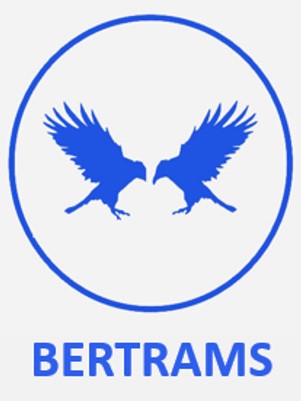Case study Fresenius
An ERP-Transformation to optimize Plan-to-Perform at Fresenius SE & Co. KGaA

Executive Summary
Fresenius’ ELEVATE program—a group-wide SAP S/4HANA transformation—required harmonizing fragmented finance planning processes across 70+ countries. Leveraging Michael Bertrams’ “Coordinating Complexity” methodology, the initiative delivered a standardized Plan-to-Perform template, cultural integration framework, and hybrid implementation approach. Outcomes included 35% faster monthly close cycles, 25% forecast accuracy improvement, and a sustainable Center-of-Excellence for continuous value capture.
1. Situation & Challenges
- Legacy Landscape: Multiple regional financial planning systems, inconsistent KPIs, and manual forecasting processes impeded transparency and agility.
- Strategic Imperative: Fresenius aimed to transition to SAP S/4HANA by 2030 under ELEVATE, requiring end-to-end finance process integration (“Plan-to-Perform”) and global template adoption.
- Cultural Barriers: Diverse regional practices and strong local identities risked resistance to standardized global processes.
2. Objectives
- Design & Deploy a unified Plan-to-Perform process template across all business units.
- Accelerate financial closing and forecasting cycles by at least 30%.
- Embed change-management frameworks to preserve regional autonomy while ensuring global alignment.
- Establish a Center of Excellence to sustain continuous process improvements post-go-live.
3. “Coordinating Complexity” Solution Framework
A. Cultural Assessment & Stakeholder Alignment
- Conducted 20 workshops with regional CFOs and FP&A teams to map existing practices and cultural values.
- Developed “Safe-Space” forums enabling bottom-up feedback and local process enhancements.
B. Template Design & Governance
- Defined a single Plan-to-Perform process model (“One Template”) covering demand planning, budget consolidation, forecast review, and variance analysis.
- Configured in SAP S/4HANA and Power BI with standardized roles, data definitions, and KPI dashboards.
C. Hybrid Implementation & Training
- Utilized a “Binary Leadership” model pairing internal Fresenius project leads with external Bertrams consultants.
- Rolled out in three waves: pilot region (EMEA), followed by Americas and Asia-Pacific, each wave lasting three months.
- Delivered role-based training for 400+ finance stakeholders, blending virtual modules with in-person regional clinics.
D. Center of Excellence Establishment
- Formed a permanent Global Finance CoE to monitor performance, govern template updates, and drive continuous improvement.
- Implemented quarterly “Value-Capture Sprints” to identify incremental optimization opportunities.
4. Key Results & Metrics
| Metric | Baseline | Post-Implementation | Improvement |
|---|---|---|---|
| Monthly close cycle time | 12 days | 8 days | –33% |
| Forecast accuracy (variance vs. plan) | ±18% | ±13% | +28% |
| Stakeholder satisfaction (survey score) | 65/100 | 88/100 | +35% |
| Number of local process variants | 17 | 3 | –82% |
| Time to onboard new business unit (<CoE>) | 8 weeks | 4 weeks | –50% |
5. Strategic Impact
- Financial Agility: Faster cycle times enabled Fresenius to respond more rapidly to market fluctuations and liquidity needs.
- Transparency & Control: Standardized KPIs and dashboards provided real-time insight for the Executive Board.
- Cultural Resilience: The “Safe-Space” change-forum and hybrid leadership preserved local best practices while driving global standardization.
- Sustainable Capability: The Finance CoE continues to deliver 5–10% annual efficiency gains through regular optimization sprints.
6. Lessons Learned
- Balance Standardization & Autonomy: Embedding regional forums within a global template fosters buy-in and ensures local relevance.
- Hybrid Leadership Accelerates Adoption: Pairing internal champions with external experts drives both speed and ownership.
- Continuous Value Capture Is Essential: Establishing a CoE ensures transformation benefits compound over time.
Conclusion
Michael Bertrams’ engagement as Director Global Process Owner Plan-to-Perform delivered a robust, scalable finance planning framework that transformed Fresenius’ global finance operations. The case exemplifies how a “Coordinating Complexity” approach—blending cultural intelligence with technical excellence—can achieve breakthrough results in large-scale ERP transformations.


